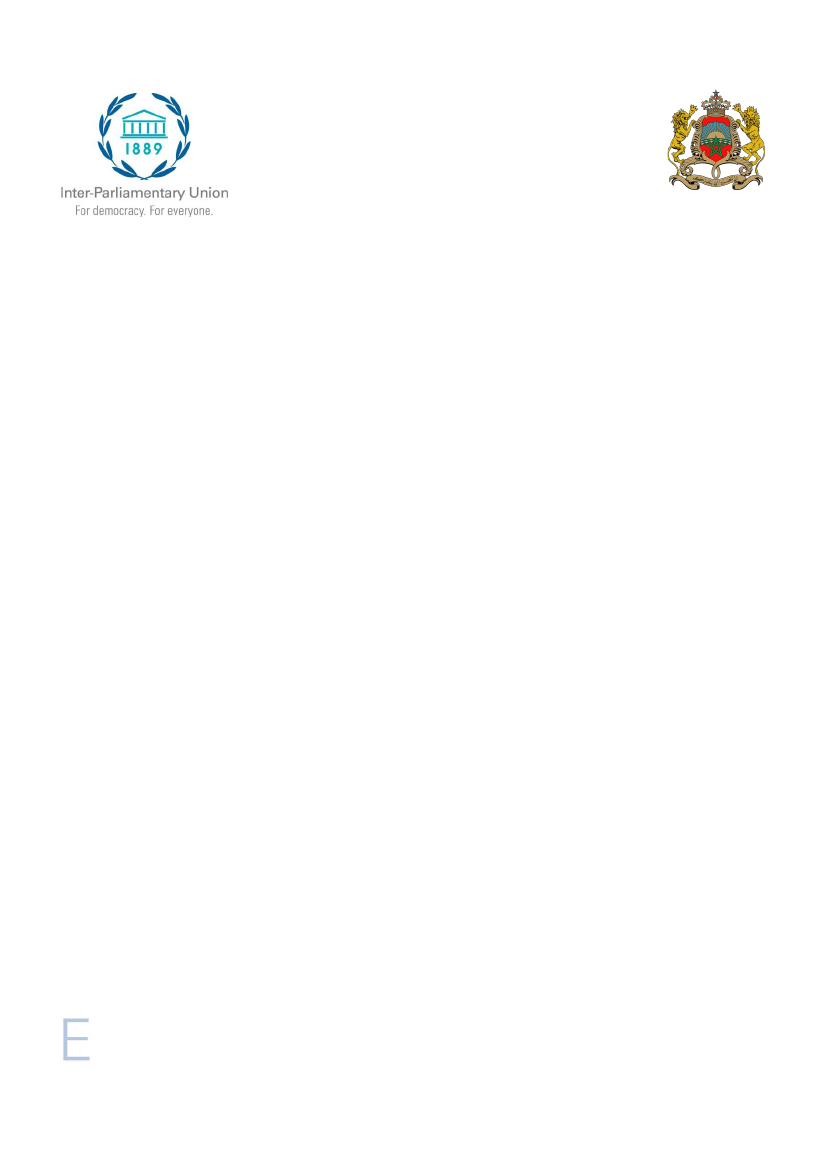
Parliamentary Conference on Interfaith Dialogue:
Working together for our common future
Palais des Congrès, Marrakesh, Morocco
Marrakesh, 13–15 June 2023
Kingdom of Morocco
*The Parliament*
Marrakesh Communiqué
We, parliamentarians from around the world, have gathered with representatives of religions, beliefs,
faith-based and civil society organizations, and international experts, at the Parliamentary Conference on
Interfaith Dialogue in Marrakesh, Morocco, organized by the Inter-Parliamentary Union and the
Parliament of the Kingdom of Morocco, in cooperation with Religions for Peace and with the support of
the United Nations Alliance of Civilizations and the Mohammadia League of Religious Scholars.
We affirm that interfaith dialogue that is grounded in support of fundamental rights and freedoms is an
essential tool for promoting inclusivity and peaceful coexistence, upholding the rule of law and
encouraging collective efforts to achieve a better society.
While religions and beliefs of various types may inform us about the world and our fellow citizens, our
first responsibility as legislators is to the people we represent, helping to secure the material
circumstances of a good and healthy life for all. It is our responsibility to uphold the rule of law and all
human rights and fundamental freedoms, including freedom of thought, conscience, religion or belief
(henceforth “religion or belief”), freedom of speech and freedom of assembly. We also affirm the
importance of ensuring that such rights and freedoms are enjoyed by all, without discrimination.
As the world emerges from three years of pandemic, we are facing a surge in armed conflicts,
geopolitical tensions and environmental degradation, which reinforce existing inequalities, economic
instability and humanitarian crises. We are witnessing the shrinking of civic space, increasing ideological
polarization and the growth of politically motivated violence in many contexts. Disinformation and hate
speech are becoming more prevalent, often amplified by social media. Feelings of insecurity are high
and citizens’ trust in their institutions is waning in many regions.
Intolerance towards minority or marginalized groups, including communities of religion and belief, is on
the rise. These trends especially impact women, who already face challenges accessing equal rights and
experience diverse forms of gender-based discrimination and violence, with religion or belief sometimes
serving as a pretext. The voice of youth, a ballooning demographic, remains sidelined.
No religion or belief should be identified with the discrimination or marginalization of another community,
nor should it condone violence against another community. We further reaffirm that terrorism and violent
extremism, as major ills threatening peace and security, should not be associated with any particular
religion, belief or ethno-religious community.
We highlight the importance of moderation when resolving religious or belief-based conflicts and the
significant role of dedicated mechanisms or institutions for conflict and dispute resolution.
We further express our concern at the backsliding of the global state of democracy, the deterioration in
human solidarity and the weakening of the moral compass in politics and societies at large that can be
seen in countries and communities around the world.
Addressing these issues requires concerted and decisive action from all of us: from parliamentarians with
their legislative power, as well as from all parts of society, including official institutions, religious and
belief communities, faith-based and civil society organizations, and academia. Times of crisis and
uncertainty especially call for solid leadership to bring people together around a common vision of the
future.